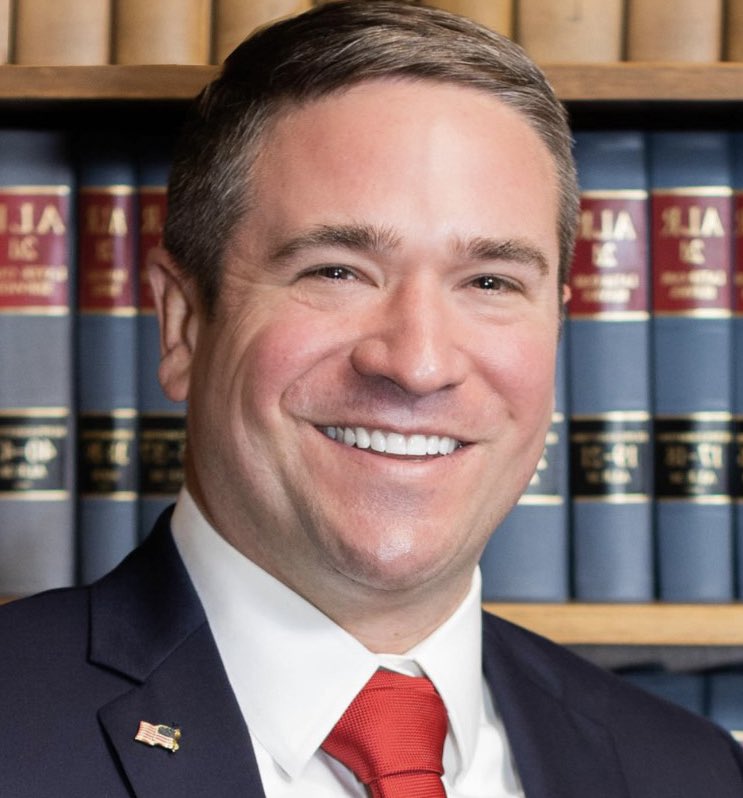BREAKING: Missouri AG Andrew Bailey Takes Bold Action to SEIZE CCP-Owned Farmland – What’s Behind This Controversial Move?
Missouri Attorney General Andrew Bailey has announced a significant move to seize farmland owned by the Chinese Communist Party (CCP). This action underscores growing concerns regarding foreign ownership of agricultural land in the United States, particularly by adversarial nations. The decision aims to protect local farming communities and national security. As states across the nation grapple with similar issues, Bailey’s initiative could set a precedent for other regions. This development highlights the increasing scrutiny of foreign investments in American agriculture. Follow us for updates on this unfolding story and its implications for farmland ownership in Missouri and beyond.

BREAKING: Missouri AG Andrew Bailey has started SEIZING farmland owned by the CCP. pic.twitter.com/kMHgQxVB2P
— Carter Hughes (@itscarterhughes) April 5, 2025
BREAKING: Missouri AG Andrew Bailey has started SEIZING farmland owned by the CCP
When you hear about government officials taking action against foreign entities, it raises eyebrows. Recently, Missouri Attorney General Andrew Bailey made headlines by initiating the seizure of farmland owned by the Chinese Communist Party (CCP). This bold move has sparked discussions across the nation about foreign ownership of agricultural land and its implications for food security and national sovereignty.
Understanding the Context of the Seizure
Missouri’s decision isn’t happening in isolation. There’s been a growing trend in the U.S. regarding the scrutiny of foreign investments, particularly from China. The U.S. government and various states have become increasingly concerned about national security and the potential risks associated with foreign ownership of vital resources, including farmland. As reported by [Fox News](https://www.foxnews.com), the CCP’s involvement in American agriculture has raised alarms among lawmakers and citizens alike.
Why Is This Important?
The seizure of farmland owned by the CCP is significant for several reasons. For one, it sends a strong message about national sovereignty. Many Americans are worried that foreign ownership of farmland could lead to control over food supplies, which is a critical issue, especially in times of crisis. The agricultural sector is the backbone of many rural communities and plays a vital role in the economy. By taking action against foreign ownership, Missouri aims to protect its local farmers and maintain food independence.
Public Reaction to the Decision
The public response to AG Andrew Bailey’s actions has been mixed. Some applaud the decision, viewing it as a necessary step to safeguard U.S. interests. Others, however, express concerns about the potential economic ramifications, including the impact on local markets and farmers who might be affected by such seizures. Discussions on social media platforms have been vibrant, with users debating the implications of this move. As highlighted by [Carter Hughes on Twitter](https://twitter.com/itscarterhughes/status/1908601488445702456), this is a topic that resonates with many, reflecting deep-rooted fears about foreign influence in American agriculture.
What’s Next for Missouri?
As Missouri takes these steps, it will be interesting to see how other states respond. Will this lead to a broader movement against foreign ownership of agricultural lands? The implications of such actions could set precedents for other states grappling with similar concerns. Additionally, it’s crucial to monitor how this aligns with federal policies regarding foreign investments and land ownership in the U.S.
Conclusion
The situation surrounding the seizure of farmland owned by the CCP in Missouri is a complex issue that intersects national security, agriculture, and economic stability. As the conversation continues, it’s essential for citizens to stay informed and involved in discussions about foreign ownership of critical resources. Engaging in these dialogues can help shape policies that protect not only local farmers but also the country’s food supply and sovereignty. Keep an eye on this evolving story, as it could have far-reaching effects on both local and national levels.
